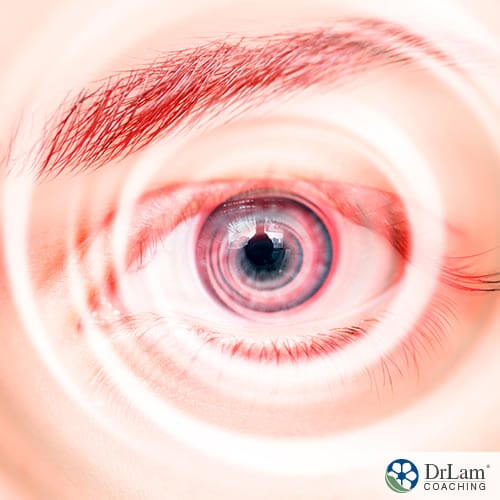Hypnotism is much more than what you see on the stage and television. It isn’t about making people do silly acts or deliberately controlling their minds. For thousands of years, hypnotherapy has been used for successfully correcting various health issues including pain, stress, phobias, depression, anxiety, eating disorders, IBS, PTSD, smoking cessation, grief, and much more.
 Today, hypnosis is recognized as a widely accepted therapeutic tool for effectively improving various health conditions. Extensive research into this ancient therapeutic technique has given evidence of its benefits for many mental and physical conditions. The therapy, when done by a licensed hypnotherapist, can facilitate healing in several areas. Doctors, therapists, psychologists, gynecologists, oncologists, gastroenterologists, and psychotherapists are now finding ways to incorporate hypnosis into their treatment procedure.
Today, hypnosis is recognized as a widely accepted therapeutic tool for effectively improving various health conditions. Extensive research into this ancient therapeutic technique has given evidence of its benefits for many mental and physical conditions. The therapy, when done by a licensed hypnotherapist, can facilitate healing in several areas. Doctors, therapists, psychologists, gynecologists, oncologists, gastroenterologists, and psychotherapists are now finding ways to incorporate hypnosis into their treatment procedure.
Hypnotism, also known as hypnotherapy, is a technique in which an individual is induced into a deeply relaxed state of mind and then provided with suggestions by a licensed hypnotherapist. During the process, the therapist focuses the mind of the individual on pleasant experiences and images. In the hypnotized state, the mind is physically relaxed, yet alert and awake. The peaceful experience is similar to that of meditation or daydreaming. For some people, reaching a hypnotic state might take up to 10 – 20 minutes, while others require only a few minutes to get hypnotized.
Most therapy sessions are focused to imbue a sense of tranquility and relaxation for greater well-being. However, it is important to keep in mind that the therapy itself is not a full treatment. It needs to be incorporated as a healing tool into various other methodologies for managing your condition. Hypnotherapy is painless and considered safe for most of the individuals.
Hypnosis can be used as suggestion therapy or patient analysis for initiating further care.
In suggestion therapy, when the individual receives messages in a hypnotic state, they are more likely to respond to and accept the suggestions of the trusted therapist. This enables people to more easily change behaviors such as smoking, over-stressing, anxiety, and depression. It can also prove helpful in changing your sensations or perceptions, which can be useful in relieving pain.
When used as an analysis tool, hypnosis explores the relaxed mind to find the possible root cause of a symptom such as traumatic or painful memories hidden in the unconscious memory. The revealed trauma is then addressed in the psychotherapy session.
The three states of hypnosis according to the Harvard Medical School are absorption, susceptibility, and dissociation.
During the hypnotic state, the mind is still alert and aware of the surroundings. As a result, most people have the ability to come out of the trance at any time during the session.
Hypnotism guides you to a hypnotic state where your mind is more relaxed and calm making it more able to accept suggestions from the professional therapist. This makes it an effective technique in alleviating stress, as the process elevates your mind into a trance peaceful state.
Stressful schedules can leave you feeling fatigue which is normal. However, if you frequently experience extreme fatigue with symptoms such as brain fog, insomnia, low energy levels, anxiety, difficulty in waking up, stubborn weight gain, low concentration levels, or craving for salty and fatty foods then it can be an indication of Adrenal Fatigue Syndrome (AFS). It is important to minimize your exposure to stressors that trigger fatigue.
Your body is equipped with NeuroEndoMetabolic (NEM) Stress Response system that helps protect against stress. It is a complex system of vital organs and six circuits which work in harmony to fight stress. During stress, the NEM signals your adrenal glands to secrete the anti-stress hormone cortisol. When stress is continuous, it exerts more pressure on your adrenals making them overburdened. As a result, the adrenal glands are no longer able to secrete adequate cortisol, thus reducing your body’s stress management ability, which raises your risk of developing AFS. Hypnotherapy can help in adrenal fatigue by eliminating stress from the subconscious mind and inducing a sense of calmness and relaxation. It significantly helps in alleviating symptoms of AFS.
Here are top health benefits of hypnosis for stress, chronic conditions, and adrenal fatigue:
 For natural pain relief, hypnotism is extensively researched, and pain is a common symptom of adrenal fatigue. Hypnotherapy can prove an effective tool in providing relief from pain.
For natural pain relief, hypnotism is extensively researched, and pain is a common symptom of adrenal fatigue. Hypnotherapy can prove an effective tool in providing relief from pain.
The Department of Psychiatry and Behavioral Sciences in Texas carried out research to find the effect of hypnotism on chronic pain. Over 13 studies were compared in which chronic pain patients underwent hypnotherapy. The research found that hypnosis could significantly reduce the effects of chronic pain disorders. Another study found that hypnosis could actually alter your psychological experience of pain.
People living with anxiety know how desperate and debilitating the condition can be. The American Psychiatric Association states that anxiety-related mental disorders are increasingly prevalent. More than 25 million Americans are victims of this disorder. Anxiety can activate your stress hormones, worsening adrenal fatigue. Anxiety is also a symptom of adrenal fatigue, creating a vicious cycle.
Many people turn to hypnotherapy to relax their restless mind. It is the subconscious mind that makes you feel anxious. A hypnotherapist identifies the cause of anxiety hidden in the subconscious, whether it is physical, situational, or psychological and presents suggestions for calming the mind. Most bad habits, such as nail biting or stuttering, are a result of an anxious mind. Relieving your mind from anxiety helps to get rid of these habits.
Psychologists suggest that hypnosis can be helpful for those with disturbed sleep and insomnia. The therapist teaches the patient how to attain a trance-like state, which can be very helpful for blocking the distracting mental chatter that often interferes with sleep patterns.
In the trance state, you focus on pleasant past experiences of comfortable, effortless sleep. Practicing going into a trance state at bedtime recreates those pleasant feelings, thus helping you to fall asleep effortlessly. The therapy also energizes the brain-wave pattern linked to sleep.
Reports suggest that nine out of ten people with insomnia found hypnotherapy useful. Hypnotherapy can prove greatly beneficial especially for AFS sufferers who have insomnia and trouble falling asleep.
Hypnotherapy has been found to be highly effective with fears and phobias by instilling deep relaxation. It also teaches the mind to respond to fear by detaching trigger objects from your emotional response and filling your mind with realistic responses. Hypnosis enables you to gain internal control over your phobia by helping you successfully cope with tense situations through mental rehearsals.
The International Foundation for Functional Gastrointestinal Disorders reports that over 45 million people in the U.S have irritable bowel syndrome (IBS). The exact cause of the disorder is unknown, but the symptoms can range from mild to debilitating. Minimizing stress, avoiding trigger foods, and getting adequate sleep can help provide relief from the problem. Studies also suggest hypnotism can be an effective tool in alleviating IBS symptoms.
Hypnotherapy involves relaxation techniques along with suggestions that can help IBS sufferers control symptoms. Studies show that hypnotism has helped IBS patients with improved quality of life by reducing symptoms of constipation, abdominal pain, bloating and diarrhea.
 Smoking is a widespread cause of death, claiming many lives each year. According to the reports from the Centers for Disease Control and Prevention, the U.S alone witnesses more than 480,000 smoking-related deaths per year. Fortunately, nearly seven out of ten U.S adult smokers are finding ways to quit smoking. Though there are nicotine-replacement medications, over-the-counter medicines, and behavioral therapy to help give up the addiction, many smokers find hypnotism to be most effective.
Smoking is a widespread cause of death, claiming many lives each year. According to the reports from the Centers for Disease Control and Prevention, the U.S alone witnesses more than 480,000 smoking-related deaths per year. Fortunately, nearly seven out of ten U.S adult smokers are finding ways to quit smoking. Though there are nicotine-replacement medications, over-the-counter medicines, and behavioral therapy to help give up the addiction, many smokers find hypnotism to be most effective.
Hypnosis is helpful in quitting smoking because it addresses the root cause of the problem through changing thought processes and breaking the emotional connection with nicotine.
Hypnosis is also known to provide support for chemotherapy, rehabilitation post serious illness or surgery, dyspnea, breast cancer, prevention of anxious feelings during coronary angiography, asthma, high blood pressure, sexual problems, panic attacks, thumb sucking, stuttering, obesity, migraines, bereavement, and tinnitus. Hypnotherapy can also help improve concentration, creativity, speech impairments, and athletic performance.
In most cases, people cannot be hypnotized against their will. It is important to understand that a successful hypnotherapy largely depends on the person’s willingness, commitment, and implementation of the suggestions presented by the trusted hypnotherapist.
Hypnotism is safe, but it needs to be conducted by a certified licensed hypnotherapist. In rare cases, hypnosis may cause unpleasant symptoms such as false memories, stomach upset, headache, and anxiety. The process may not be suitable for people who have psychotic symptoms such as delusions or hallucination. People with alcohol or drug addictions might not be suitable for hypnosis. Hypnotherapy should be used for pain control only after evaluation by a doctor. Hypnosis works best as a complementary therapy alongside conventional medicines. The therapy relaxes your mind and prepares you to respond better to the other medical methodologies for enhanced recovery. The process is effective only when you are willing to be hypnotized and accept the suggestions of the professional therapist.
Hypnotism has been practiced from the ancient times for relief from various health conditions. The process involves guiding the mind to a relaxed, peaceful, and calm state, making it more willing to accept suggestions of a hypnotherapist. In a hypnotic state, the mind is relaxed and thus highly responsive to suggestions for healing.
 Hypnosis can deliver great results when done by a licensed hypnotherapist. The therapeutic tools assist in effectively providing relief from many health issues including pain, stress, phobia, fear, anxiety, adrenal fatigue, depression, insomnia, IBS, and quitting smoking. Doctors and therapists are now looking for ways to incorporate hypnosis into their care plans. Hypnotherapy in combination with medical care can be highly effective in correcting numerous health conditions.
Hypnosis can deliver great results when done by a licensed hypnotherapist. The therapeutic tools assist in effectively providing relief from many health issues including pain, stress, phobia, fear, anxiety, adrenal fatigue, depression, insomnia, IBS, and quitting smoking. Doctors and therapists are now looking for ways to incorporate hypnosis into their care plans. Hypnotherapy in combination with medical care can be highly effective in correcting numerous health conditions.
Hypnotism is considered to be a safe therapeutic technique when done by a professional hypnotherapist. For best results, it is important to consider your full medical history and present condition. Confabulation is a minor risk related to hypnosis, which gives rise to false memories in patients with PTSD. It can also occur in other cases.
